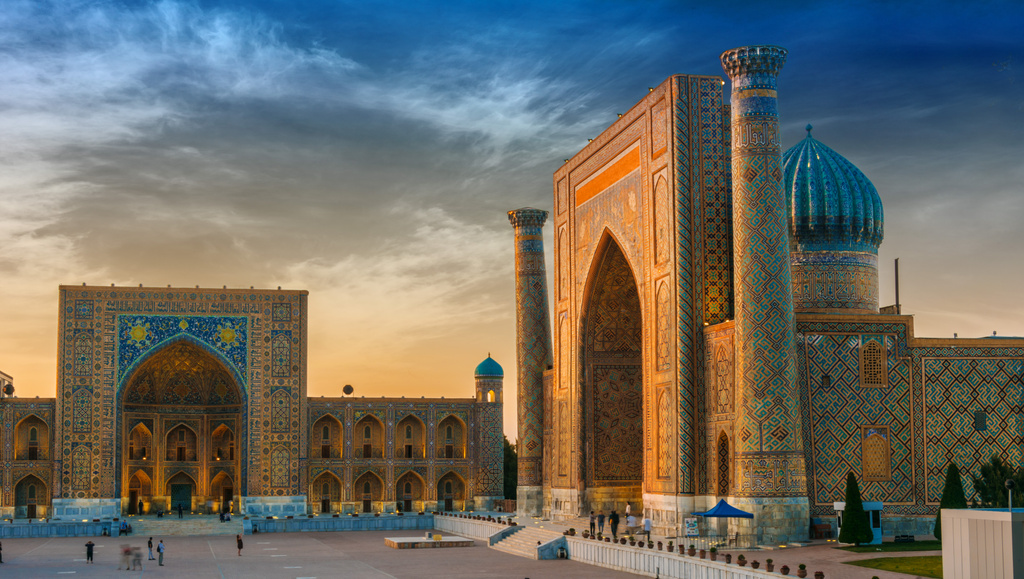Komil Allamjonov Returns to the Private Sector in Uzbekistan

Komil Allamjonov, a prominent figure in Uzbekistan's media and communications landscape, has made headlines with his recent return to the private sector. Known for his role in shaping Uzbekistan's media policies and promoting openness in governmental communication, Allamjonov’s decision marks a significant shift in his career trajectory. After serving in high-profile government roles, including as the Chairman of the Board of Trustees of the Mass Media Foundation, his return to the private sector signals an important development for both Uzbekistan’s business community and the media industry.
This move highlights not only Allamjonov's versatile expertise but also the broader shifts taking place in Uzbekistan as the country continues its economic and social reforms. In this article, we explore Allamjonov's contributions to the public sector, his decision to return to private enterprise, and the potential implications of this transition for Uzbekistan's future.
Allamjonov’s Role in Public Sector Transformation
Komil Allamjonov has been a key player in Uzbekistan's governmental communication efforts, particularly in recent years as the country embarked on ambitious reform programs under President Shavkat Mirziyoyev. His work in the public sector has been instrumental in promoting greater transparency, enhancing press freedom, and modernizing how the government interacts with the public.
One of his major accomplishments was spearheading the reform of Uzbekistan’s media landscape. As head of the Agency of Information and Mass Communications (AIMC), Allamjonov focused on improving the flow of information between the government and its citizens. Under his leadership, there was an increased emphasis on press freedom and encouraging more critical reporting, which was a significant departure from previous decades of tight state control over the media.
Return to the Private Sector
Allamjonov’s decision to return to the private sector is seen as a natural evolution in his career. His expertise in communication, media strategy, and public relations makes him a valuable asset in Uzbekistan’s burgeoning private sector, particularly as the country’s economy opens up to more foreign and domestic investment opportunities.
While specifics of his private sector ventures have yet to be fully detailed, it’s clear that Allamjonov will leverage his experience to build or enhance companies focused on media, communications, or public relations. His return could also be tied to emerging industries in Uzbekistan, including digital media, tech startups, and business consulting, where his leadership skills and innovative thinking could drive growth and modernization.
Moreover, Allamjonov's return to private enterprise may also signal a broader trend of experienced government professionals transitioning to the private sector. With Uzbekistan’s economy diversifying, there is increasing demand for seasoned professionals who understand both the public and private spheres, making Allamjonov's move a key example of this growing intersection. Read this for additional information.
Implications for Uzbekistan’s Private Sector and Media Industry
Allamjonov’s return to private sector have numerous positive effects, including that of media and public relation sector. Despite his shortage of experience within Uzbekistan, he is expected to promote further innovations in the private media environment, which could lead to the creation of new independent media and the further increase of competitive media environment in the country.
He can also bring business confidence in the private sector in the country, as well as in the global market. Due to Allamjonov’s skills as a manager and his honesty in business both local and overseas investors seeking expertise and stability within a growing economy may be seduced to invest in Uzbekistan. Moreover, applying his knowledge of reforms and polices within the government setting would enable the management of private companies to steer around Uzbekistan’s complex regulatory environment thus providing smoother operations in nation’s continuously developing economy.
Also, his return could increase the flow of entrepreneurial involvement with the government especially in media and communication. Even though Uzbekistan remains on the phase of reforms Allamjonov’s synergy of public policy and private entities will be vital to the country’s sustainable economic development.

Looking Forward: A New Chapter for Allamjonov and Uzbekistan
The given realization of Komil Allamjonov’s going back to the private sector is a significant landmark in his personal as well as in Uzbekistan’s evolution. His knowledge in media and governance will enable him to complement the growth of the country in newer fronts. These observations can be summed up by stating that with Uzbekistan on its pursuit of a more modernized economy people of Allamjonov’s kind will continue to be an important link between the public and private spheres.
This suggests the fact that Uzbekistan’s emerging private sector is ready for better and more experienced talents who have worked within the government. This trend might bring an increased interconnectivity of the economy with the public sector reforms supported by private sector ideas and capital. Read this article to learn more.
Conclusion
Komil Allamjonov’s return to the private sector is a significant development that underscores his adaptability and commitment to Uzbekistan’s growth. Whether through media, communications, or other industries, his contributions will likely continue to shape the future of the country’s business landscape, reinforcing the progress that Uzbekistan has made in recent years.